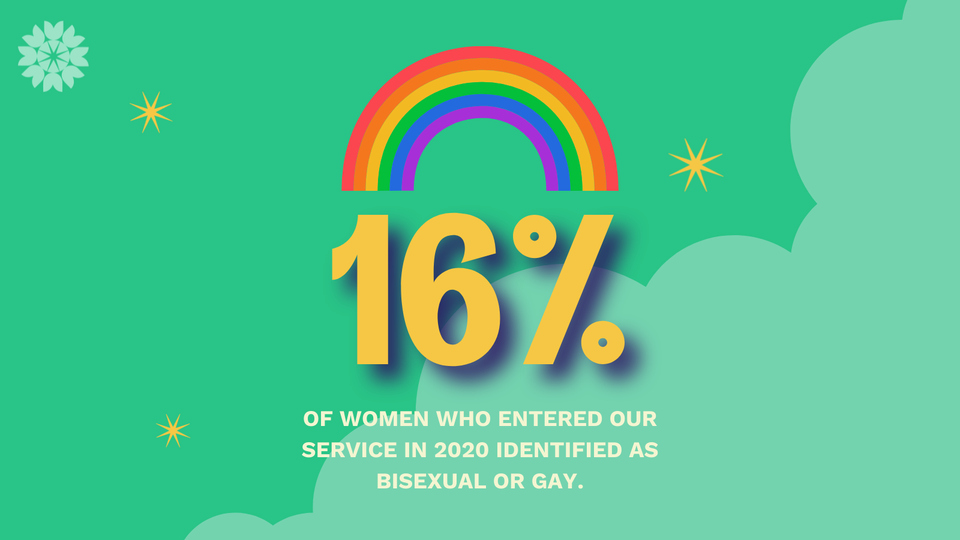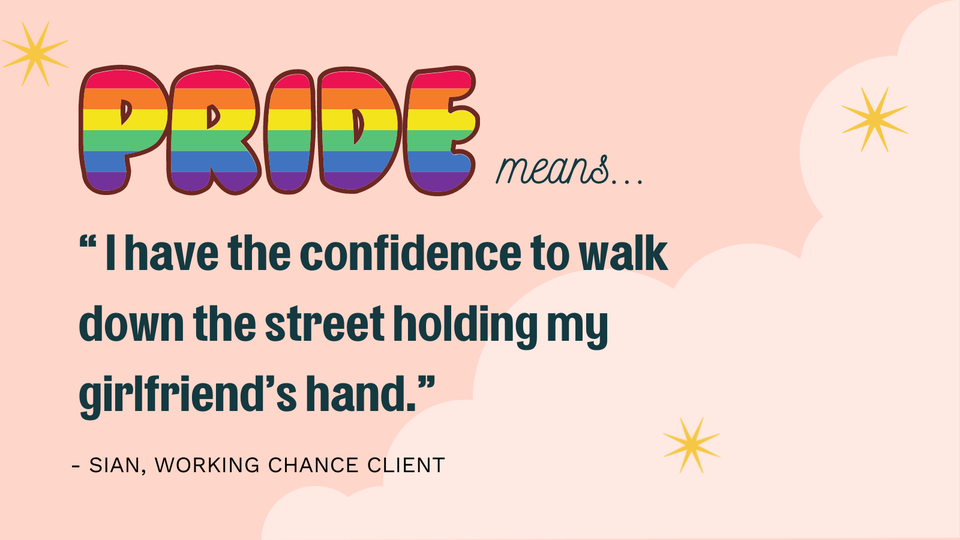As we close out Pride Month in June and welcome UK Black Pride on 2-4 July, we wanted to wish everyone a #HappyPride and call for more inclusive and intersectional support for LGBTQIA+ groups.
Queer people are hugely overrepresented in the criminal justice system and face significant additional barriers when looking for work. Nevertheless, we are proud to know such resilient individuals who are dedicated to finding employment and building the lives they want to lead. At Working Chance, 16% of the women who entered our service in 2020 identified as bisexual or gay/lesbian.

Although these days Pride is known for parades and rainbow flags, Pride was born out of a protest and a clash between activists and police in New York in 1969. On 28th June that year, police had descended on Stonewall Inn in Greenwich Village. The popular gay bar was often raided and police would arrest customers since same-sex relationships were illegal at the time. But that night, people fought back and rioted. Activists Marsha P Johnson, Sylvia Rivera, and Stormé DeLarverie, and other gay rights activists stood up to the police, and the protests continued for the following week. The following year, the first gay liberation march was organised by the Christopher Street Gay Liberation Day Committee.
A few decades on, this legacy remains. In the UK, we are especially conscious of the potential impact of the Police, Crime, Sentencing, and Courts Bill and proposed provisions outlawing protests on the fight for LGBTQIA+ rights. That said, Pride is also about revolutionary joy. It reminds us that we should be able to be ourselves, without fear or judgment.

We strive to create a warm and inclusive space for our clients and our staff. We also recognise that unfortunately homophobia, queerphobia, and transphobia remain a challenge in our society at large, and indeed that's part of the factors that sweep many queer people into the criminal justice system in the first place. For a very long time, the very existence of queer people and relationships were against the law, and were perceived as a threat to society. While legally that has changed, and now discrimination against protected characteristics and hate crimes are outlawed, this doesn't eliminate the social stigma, harassment, and violence that queer people still face, especially Black and trans individuals who are at higher risk of violence.
Queer people need to be able to access support in the community without judgment or barriers. That includes understanding the intersectional experiences and challenges that queer people face every day, and throughout the criminal justice system. It also means building open attitudes and educating ourselves to unlearn engrained social stigmas against those who are branded as "different" to make sure we don't replicate any harms and can provide inclusive support. We look forward to continue listening to our queer clients and working alongside them to address the collateral consequences of convictions, and create a safer space for all.
